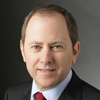 The Advent of New Business Models and Consumer Demand
The Advent of New Business Models and Consumer Demand
By Andrew Litt, MD, Chief Medical Officer, Dell Healthcare and Life Sciences
Twitter: @DrAndyLitt
Admit it. When you think of progressive, forward-looking industries that are using technology to transform the way they do business, healthcare is probably not top of mind. It’s a fragmented business that generally has been slow to adapt to change.
But thanks to cost and quality imperatives, the advent of new business models and consumer demand, healthcare is making progress and technology is at the very heart of it. Savvy entrepreneurs who are developing promising new solutions that address healthcare’s growing pains can find a wealth of available capital, a rich support network, and a ready and willing market.
New Business Models
Evolving healthcare models offer new opportunities allowing organizations to benefit from healthcare analytics and business intelligence.
Accountable Care Organizations (ACOs) – groups of doctors, hospitals and other healthcare providers, who come together voluntarily to coordinate care for patients – will be paid on value not volume, and how they manage their patient populations will determine whether they succeed. Tools that enhance collaboration among caregivers or assist patients to better manage chronic conditions will be necessary in this new shared-risk environment.
Health plans are also facing new challenges. To compete and grow their business in the new consumer-centric marketplace, health insurers must attract and retain new customers and help them take ownership of their health and well-being. Insurers must capture and integrate data on customer behavior and lifestyle as well as information about their health and medical treatment.
The Personalized Approach
Technology also enables more personalized care. The popularity of activity trackers and other wearable devices is proof that people want to engage in managing their health in a meaningful way. In a recent study conducted by Intel, 66 percent of people said they would prefer a personalized healthcare regimen designed specifically for them based on their genetic profile or biology. And 72 percent are receptive to communication technologies that allow them to remotely connect to their doctor. Telehealth, remote patient monitoring and mHealth tools are making healthcare more affordable and accessible, even in the most remote areas of the world.
Dell Healthcare Pitch Days
At Dell, we have a history of improving access to and accelerating use of technology to improve society, and our work in healthcare exemplifies that. We have more than 11,000 employees globally providing innovative technology solutions to healthcare organizations from the smallest physician practices to the largest healthcare systems, payers and pharmaceutical companies in the world.
But we also know that some of the greatest innovations are yet to come, and they are being developed by startup companies who are looking to take their products to the next level.
Through Dell’s Tech Innovation Day Series: Healthcare Pitch Days, we will identify innovative healthcare and life sciences startups that are developing mobile technologies that have the potential to improve patient outcomes.
We know there are a lot of companies out there working on truly transformative technologies in the areas of healthcare analytics, clinical workflow management, mobile health applications, wireless devices and more, and we want to shine a spotlight on those that can have the greatest impact. Follow along as the challenge unfolds!
About the author: As Chief Medical Officer, Dr. Andrew Litt is responsible for providing strategic insight to Dell’s healthcare solutions so that healthcare organizations, medical professionals and patients realize the benefits of information-driven healthcare. This article was originally published on Center for Entrepreneurs and is republished here with permission.
